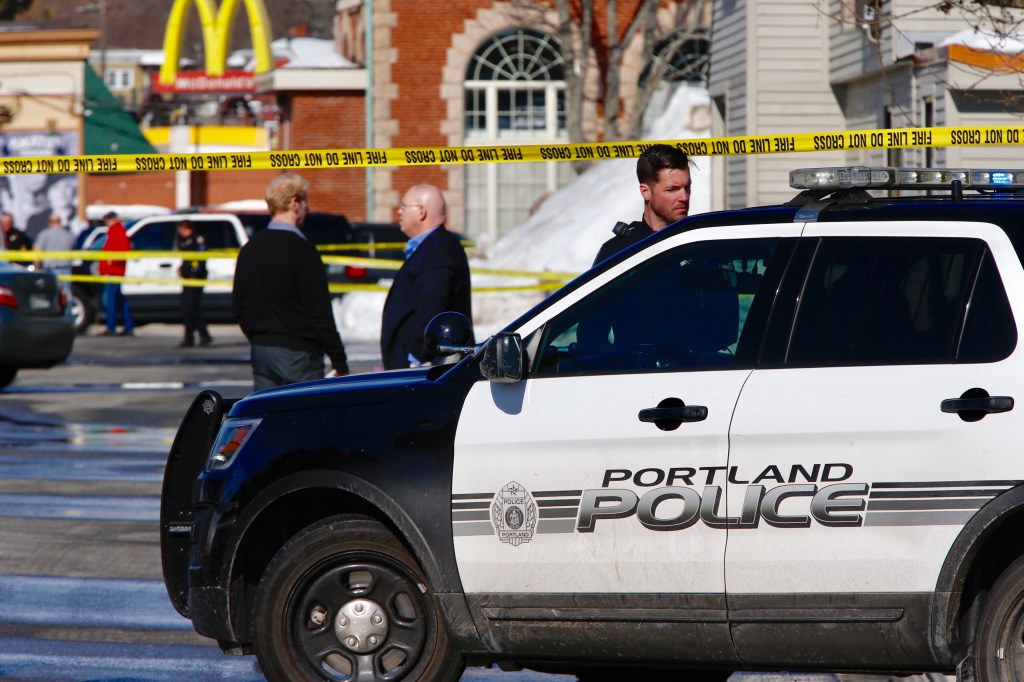Mental illness and the associated distress shouldn’t be met with a bullet. But that’s exactly what happened to Georgia Tech student Scout Schultz on Sept. 16.
In a state of mental breakdown, as described by their family’s lawyer, Schultz called 911 and gave a false police report of a white male with long blond hair, armed with a knife and a gun. Schultz was later shot and killed by campus police officers as the student slowly took three paces toward police while saying, “Shoot me.” The officers obliged, saying the next day that Schultz had had a knife – although Schultz was holding only a multitool, which reportedly did not have its small blade extended.
Schultz struggled with clinical depression, something I can profoundly empathize with. They were also an incredibly active and successful student, maintaining an impressive 3.9 GPA while still having time to lead the campus’ Pride organization. They identified as gender nonbinary; they were intersex (an umbrella term describing people born with reproductive or sexual anatomy and/or a chromosome pattern that can’t be classified as typically male or female), and they used “they/them” pronouns.
As someone who loves and strives to fight for my queer community, I know that research shows that nearly 42 percent of transgender individuals attempt suicide at least once, in comparison to 4.6 percent of the general population. But why should police have the right to act as judge, jury and executioner of every distressed youth?
Portland has had its own taste of this, as earlier this year our police shot and killed a distressed young black man for waving what turned out to be a pellet gun around a parking lot, steps away from the pawnshop where he’d bought it minutes before. Similar to Schultz’s case, the media (including this newspaper) tried their damnedest to paint Chance David Baker, a victim of police brutality, as an evil threat to our just and merciful police officers.
Of course, neither Schultz nor Baker was a threat. Baker was shot in the head; the tactical officer who killed him was using a long rifle and taking cover behind his cruiser, some 100 feet away, according to Police Chief Michael Sauschuck. “Suicide by cop,” as it’s popularly referred to, simply doesn’t happen in other countries. It seems an almost uniquely American phenomenon due to our law enforcement officials’ lack of accountability.
Eventually we’ll have to recognize that the use of force is distributed unevenly, as even our beloved officers hold implicit (and explicit) biases toward certain demographics. One almost forgets that they’re citizens, too, and should be held to the highest standard of legality, especially if they intend to keep utilizing lethal force as their main method of crisis negotiation and de-escalation.
Interestingly, the Portland Police Department has already met with a few local transgender community members, including myself, to discuss an internal policy review in which they might find a better methodology in how to interact with us. I hope that through the national discourse on transgender rights, including Schultz’s tragic and unjust killing, we can reach a point where minority communities don’t actively avoid the police out of fear of persecution.
Until then, we’ll have to protect our own. Anecdotally, I know that many older transgender folks in Maine carry a concealed weapon, as is their constitutional right in this state. I can hardly blame them for it, having been attacked and targeted for my own perceived identity.
Ultimately, Portland acts as the gateway for many into Maine, as I’m sure City Hall understands, considering their constant drive for tourist dollars. With that position comes diversity and the duty to protect those who select Portland as their destination or even place of refuge. Many cities such as Minneapolis and San Francisco already have written policing policy on how to interact with and respect the rights of minority communities. Why not Portland? I believe our city councilors capable of guiding an initiative to do just that, if the Police Department proves taciturn on these issues.
The current Police Citizen Review Subcommittee is toothless, and primarily made up of people who have very little experience with police overreach or brutality. Perhaps if the panel had more legislative gravitas, and were manned by a diverse subset of Portland residents, it would be able to prescribe substantive policy recommendations. Time will tell how the continuing dialogue on policing issues will pan out, but people are paying the price with their lives nonetheless.
Copy the Story LinkComments are not available on this story.
Send questions/comments to the editors.


